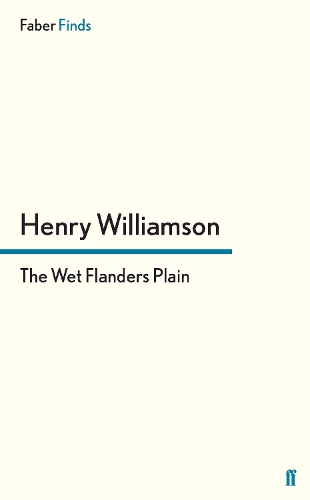
The Wet Flanders Plain
(Paperback, Main)
Publishing Details
The Wet Flanders Plain
By (Author) Henry Williamson
Faber & Faber
Faber & Faber
15th October 2009
Main
United Kingdom
Classifications
General
Non Fiction
European history
Memoirs
940.414
Physical Properties
Paperback
200
Width 135mm, Height 216mm, Spine 15mm
256g
Description
The Wet Flanders Plain was first published in 1929. It was in good company for that year also saw the first publication of Erich Maria Remarque's All Quiet on the Western Front, Robert Graves's Goodbye to All That, Ernest Hemingway's A Farewell to Arms, R. C. Sherriff's Journey's End and Ernst Junger's Storm of Steel. It doesn't suffer by comparison. But it is different from them. Unlike almost all the Great War classics this book isn't based on delayed recollection, it is more immediate than that. Flanders and Northern France. In Williamson's own words he wanted to 'return to my old comrades . . . to the brown, the treeless, the flat and grave-set plain of Flanders - to the rolling, heat-miraged downlands of the Somme - for I am dead with them, and they live in me again.' He wanted to be rid of the 'wraith of the war'. in both fiction and non-fiction works, it is doubtful if he was successful in that but what he does give us is a memoir that, as one reviewer put it, 'emerges from the mass of War books as the most beautiful and the most terrible.'
Author Bio
Henry Williamson (1895-1977) was a prolific writer best known for Tarka the Otter which won the Hawthornden Prize in 1927. He wrote much of else of quality including The Wet Flanders Plain, The Flax of Dream tetralogy and the fifteen volume A Chronicle of Ancient Sunlight all of which are being reissued in Faber Finds. His politics were unfortunate, naively and misguidedly right-wing. In truth, he was a Romantic. The critic George Painter famously said of him, 'He stands at the end of the line of Blake, Shelley and Jefferies: he is last classic and the last romantic.'
